In person-centered Home and Community-Based Services (HCBS), people define their own needs and preferences to live their lives the way they want. However, these outcomes are not always achieved, even when person-centered policies and programs are put in place. In this webinar, panelists who receive or have received HCBS, will share their experiences with person-centered supports and services. The discussion will include topics related to rights, choice, and control and how these critical elements can be improved and fully integrated into service delivery practices. Members from the Rehabilitation Research and Training Center on HCBS Person-Centered Outcomes and Measurements at the Shirley Ryan AbilityLab will also present early findings from their research of best practices for person-centered HCBS delivery from interviews with people who use and deliver HCBS.
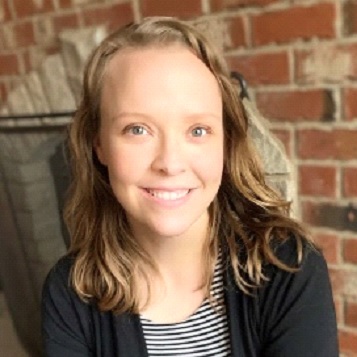
Lindsay DuBois is the project manager for the Rehabilitation and Research Training Center on Home and Community-Based Services Outcomes Research and Measurement. Dr. DuBois has more than 10 years of experience in disability research, with an emphasis on monitoring and evaluation of health inequities for people with disabilities. She is also passionate about knowledge translation and ensuring that research is accessible to and actionable for a variety of stakeholders.
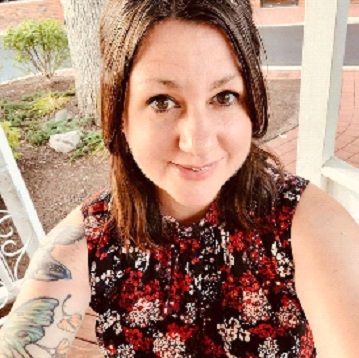
Tonie Sadler is a post-doctoral fellow in Health Services and Outcomes Research at Northwestern University and the Center for Rehabilitation Outcomes Research at Shirley Ryan AbilityLab. Her research focuses on disability health services and policies that affect people with disabilities and their families throughout the life course. She has over ten years of research and practice experience with marginalized populations, specifically populations with disabilities and complex healthcare needs.
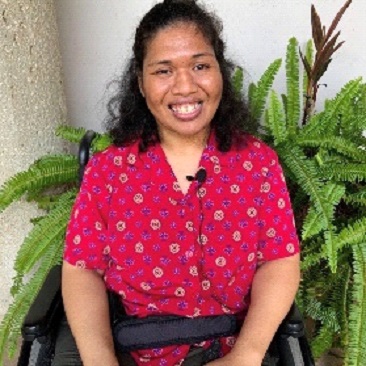
Bathey Fong is a 37-year-old self-advocate living in Hawaii. Bathey was born in American Samoa and is a person with a disability. She has two disabilities: a learning disability and cerebral palsy. Bathey is a college student and is also active in the community. She is president of the self-advocacy program for the Developmental Disabilities Council. She also works on emergency preparedness for people with disabilities. She has worked on a book with her team on teaching people with disabilities and their families how to run meetings and speak up for themselves.
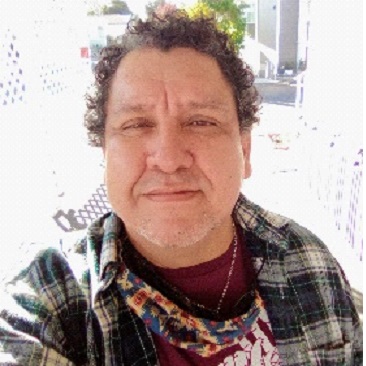
Héctor Manuel Ramírez (them/they) is an Apache & Mexican Two Spirits person occupying space in Yaanga, Tongva (Los Angeles, California) the unceded ancestral lands of the Tongva/Kizh/Tatavin, Chumash & Fernandeño Tataviam Band of Mission Indians. Héctor is an Autistic person who is hard of hearing & has a psychiatric disability. Hector does local, state, & federal level policy work in the areas of equity & disparities. Héctor is on the board of directors with Disability Rights California & the National Disability Rights Network where Héctor provides oversight & accountability.
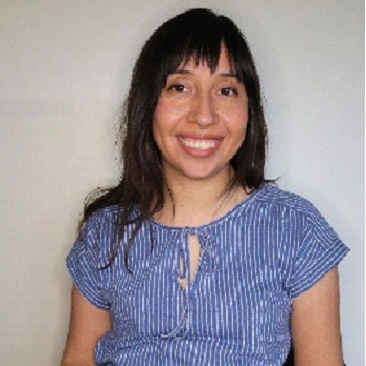
Reveca Torres is an artist, filmmaker and disability advocate. She was paralyzed in a car accident as a teenager. Reveca started a nonprofit called BACKBONES after realizing that years of interaction and friendship with others living with spinal injuries (SCI) made a significant impact in her own life. Reveca wanted to ensure that others, especially those newly injured, had access to resources, information, and the same type of support she has had. Reveca is also co-director of ReelAbilities Film Festival Chicago and has curated touring photography and art exhibitions that showcase work of people with disabilities and bring awareness to disability rights.
Resources:
NCAPPS is an initiative from the Administration for Community Living and the Centers for Medicare & Medicaid Services to help States, Tribes, and Territories to implement person-centered practices. NCAPPS webinars are open to the public, and are geared toward human services administrators, providers, and people who use long-term services and supports. All NCAPPS webinars will be recorded and archived at https://ncapps.acl.gov.